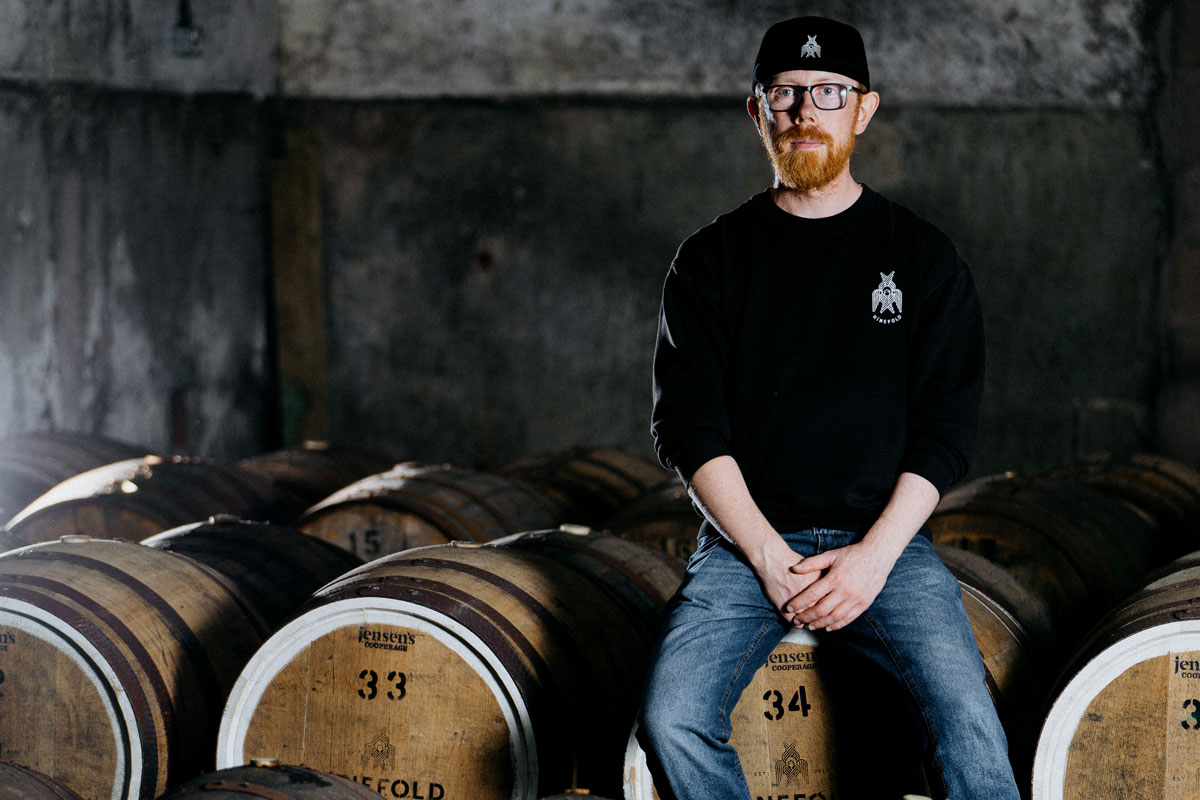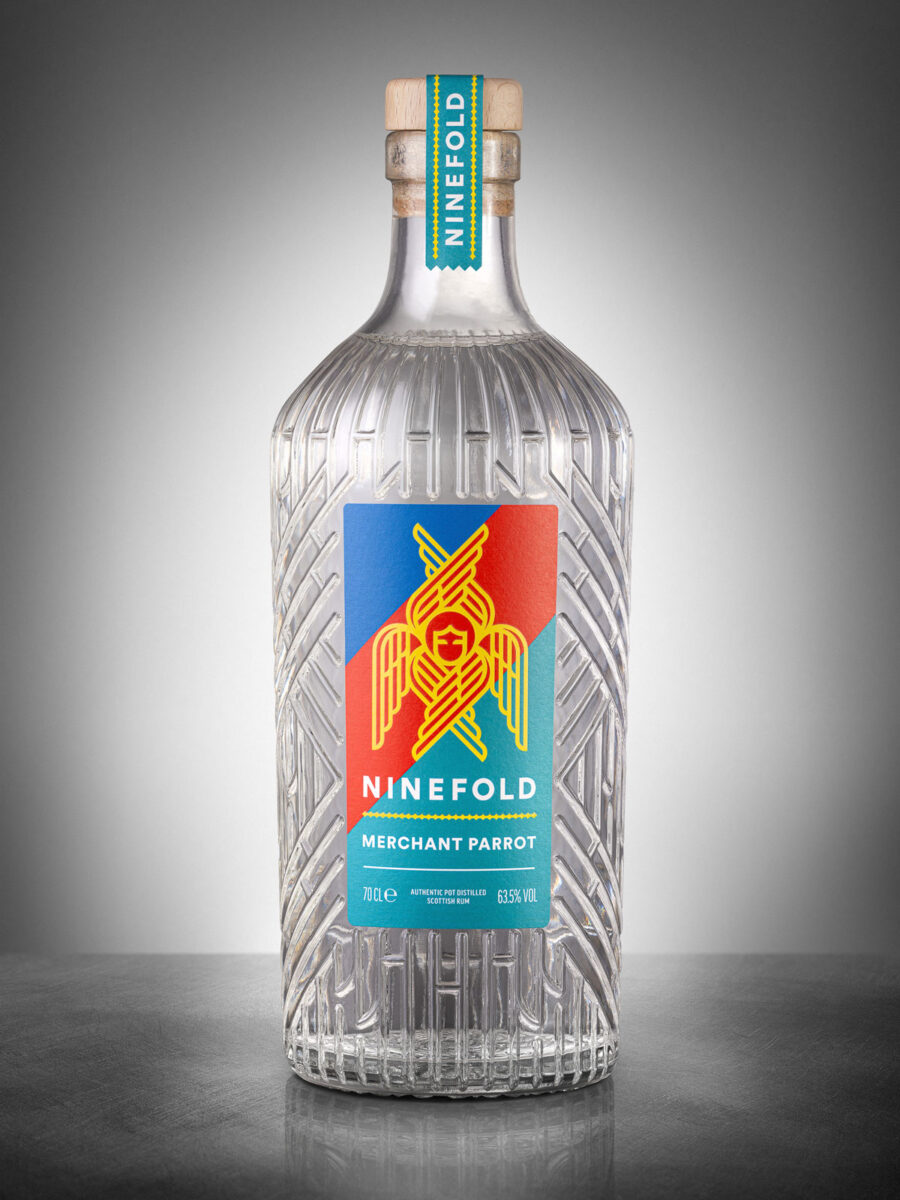
By Dave Hunter
The owner of one of Scotland’s homegrown rum brands is giving customers more choice as interest in the category continues to grow.
Kit Carruthers launched Ninefold Rum in 2019 after converting part of his family estate in Dalton, Dumfries & Galloway, into a distillery.
Initially offering a core range of three rums – Pure Single Rum, Cask Aged Single Rum and Dormant Spiced – Kit expanded the range further in June with the launch of another two rums: Merchant Parrot, an overproof rum Kit hopes will prove popular with bartenders; and Celestial Spiced, a second spiced rum aimed squarely at what is an expanding section of the market.
Whereas Dormant, the original spiced rum, is described as being a drier, rum-forward liquid, Celestial is sweeter, more heavily-spiced.
Kit said that, with the spiced rum sector booming, expanding the spiced side of the portfolio was important for the business, even if as a ‘rum purist’, his heart lies elsewhere.
“About half the market is spiced rum,” Kit told SLTN last month.
“I’m a bit of a rum purist so, for me, I make spiced rum to bring cash into the business. But my heart is really in the aged rums and the straight, unaged stuff. And I’m very much an advocate for transparency and authenticity and… like what you like, but know what it is you like, so that whole education around what rum is, different categories, what’s in your drink. All this kind of stuff.
“That’s where I come from in the rum world. And you’ll find a similar attitude with the original band of distillers in Scotland, like J Gow and Matugga, Sugar House, Islay. We’re all very much of that ilk.”

Ninefold matures its aged rums in a variety of cask types, including fresh oak casks, ex-bourbon and ex-sherry casks, working with brokers such as Speyside Cooperage as well as directly with a number of Scotch whisky distilleries – which lend Kit their first-fill bourbon casks for maturation before taking them back to use for rum finishes for their whiskies.
Particularly exciting are nine casks created from Scottish oak that was sourced on the family estate.
While there are a limited number of other distillers experimenting with Scottish oak, the connection to the family estate will make that particular rum unique when it is released.
Kit said: “This is wood that has come from my estate, that has been felled, boarded, dried here at the distillery and then coopered by Jensen’s Cooperage down in Yorkshire.
“So even if having Scottish oak is maybe not unique, the scale at which I’m doing it and the story behind it is unrivalled.”
That point of difference could be increasingly important in what is becoming a rapidly more competitive marketplace.
It wasn’t so long ago that the prospect of a Scottish rum was, in itself, a unique selling point. But in recent years the Scottish rum ranks have swelled and Kit reckoned that – for the time being at least – supply might be outstripping demand.
“My personal view is that I don’t think the market is actually there yet to support the number of new entrants in the market,” he said. “I think there’s been an acceleration of new rums, and a lot of that has come from the gin (producer) side of things.
“But I don’t think rum sales have increased by the same amount.”
And while the bulk of Ninefold’s sales are in the off-trade, the on-trade remains close to Kit’s heart. He works with select venues and bartenders around the UK to showcase his rums, as well as to highlight the bartenders themselves (his Instagram recently featured queer bartenders from around the UK to coincide with Pride).
“I don’t do much business off the back of it, it’s more just about trying to support the industry,” he told SLTN.
“I’ve donated to The Ben previously and I try and do what I can to support these guys, even if it’s not a big money maker for me.”




















